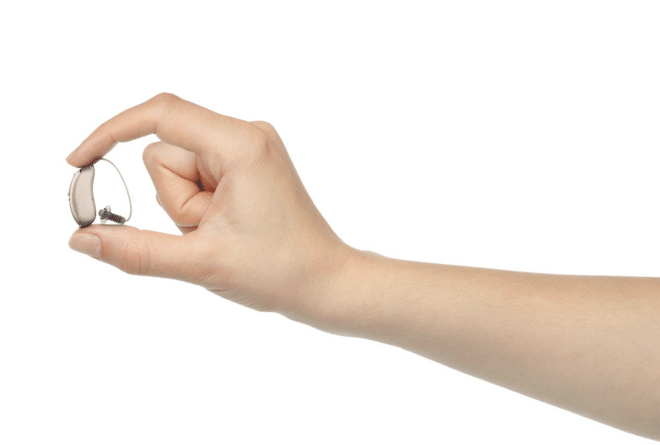In the United States, it is estimated that one in every eight people age 12 and older has hearing loss in both years. What’s more, approximately 28.8 million adults in the US could benefit from using hearing aids. But when we’re discussing hearing loss, we’re talking about a variety of different categories, all with unique causes and treatment options.
But what are the common types of hearing impairment, what are their common causes, and can hearing aids help? Keep reading to find out more.
What are the 4 Types of Hearing Loss?
There are four primary types of hearing loss: conductive, sensorineural, mixed, and auditory neuropathy, and each classification is associated with different causes of hearing loss. Let’s briefly explore these four categories, their causes, and their typical treatment options.
Conductive Hearing Loss
Conductive hearing loss occurs when sound waves are unable to get from the outer or middle ear into the inner ear. This causes a reduction in the ability to hear sounds, especially faint sounds. While there are many causes of conductive hearing loss, some of the most common include a blockage in the ear, damage to bones in the ear or the eardrum, or birth defects or abnormalities.
In some cases, conductive hearing loss may be treated with surgery or medicine, though in other cases, audiologists may recommend the use of hearing aids or cochlear implants.
Sensorineural Hearing Loss
Sensorineural hearing loss, also called nerve-related hearing loss, occurs when there is an issue with the way the inner ear or the acoustic nerve functions. This type of hearing loss can be caused by several things, including repeated exposure to loud noises, trauma, disease, malformation of the ear, or even aging.
The treatment for sensorineural hearing loss varies based on the root cause of the issue. In some cases corticosteroids or surgery may help. As sensorineural hearing loss is often permanent, the use of hearing aids or cochlear implants as treatment options is very common.
Wondering “What is the most common type of hearing loss?” The most common type of hearing loss is sensorineural loss.
Mixed Hearing Loss
Mixed hearing loss, also referred to as combined hearing loss, occurs when both conductive and sensorineural hearing loss are present. Because it’s often easier to treat, audiologists recommend treating the conductive hearing loss component first. As the sensorineural component of mixed hearing loss is often permanent, treating the conductive portion can provide a better baseline for treatment.
For individuals with mixed hearing loss, hearing aids, cochlear implants, or surgery may be recommended as long-term treatment options.
Auditory Neuropathy
Sometimes called auditory neuropathy spectrum disorder, auditory neuropathy is a fairly new classification of hearing loss. In this type of loss, sound enters the ear as expected, but the transmission of sound signals from the inner ear to the brain is impaired in some way. Essentially, the brain cannot properly understand the sound that enters the ear. It can be hard to diagnose auditory neuropathy because individuals with this type of hearing loss may pass hearing tests but struggle with words and other complex sounds.
The causes of auditory neuropathy are still being studied, although genetic mutation and damage to the auditory nerve are leading factors. In some cases, auditory neuropathy may be treated with a cochlear implant, although other cases may require the use of a visual communication language like sign language.
Curious about what is the least common type of hearing loss? Auditory neuropathy is considered the least common type of hearing loss.
How Do I Know What Type of Hearing Loss I Have?
The best way to understand your hearing, including what type of hearing loss you have, is to visit an audiologist. They can perform hearing tests as well as physical exams to determine what type of hearing loss you have and how severe it is. After they’ve performed tests and properly diagnosed you, audiologists can work with you to develop a treatment plan that considers what type of hearing loss you have and how it’s impacting your day-to-day life.
Alpaca Audiology: Audiology Clinics You Can Trust
At Estes Audiology, we’re on a mission to transform hearing solutions for patients nationwide. If you think you may have hearing loss, one of the first things you can do is take a quick, simple, and free online hearing test. At Estes Audiology, our online hearing self-assessment provides the same premium calibration as a pro-led test. This is an excellent first step to learning more about your hearing loss.
Once you’ve taken a self-assessment, we encourage you to reach out to one of our top-tier community-based clinics. Our clinics provide comprehensive assessments and use the latest in hearing technology to create customized hearing solutions that fit your lifestyle and your budget. Explore all our clinics today.



